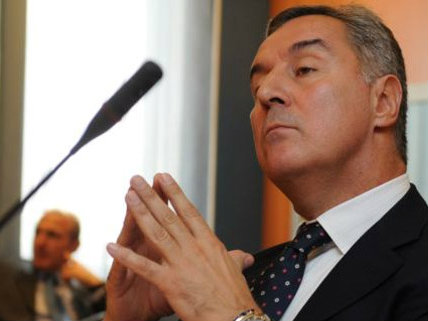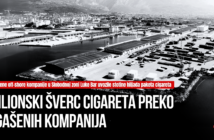 A key benefit from the latest credit line of the Investment Development Fund (IDF), which amounts to €55 million, will have companies that build small hydro power plants, mostly owned by local tycoons and persons related to the prime minister Milo Djukanovic, according to the analysis of MANS Investigation Center.
A key benefit from the latest credit line of the Investment Development Fund (IDF), which amounts to €55 million, will have companies that build small hydro power plants, mostly owned by local tycoons and persons related to the prime minister Milo Djukanovic, according to the analysis of MANS Investigation Center.
The documentation that the IDF submitted to the State Aid Control Commission in order to assess the compliance of credit allocation in 2015 with the Law on State Aid Control, says that the cooperation with the Norwegian Export Credit Guarantee Agency has been established, in order to finance renewable energy projects in Montenegro.
“IDF has prepared a special project for the financing small hydro power plants, where it is proposed to provide €55 million. The emphasis is on the financing of small and medium hydro power plants in Montenegro”, it is stated in documents at the disposal of MANS Investigation Center.
It is indicated that the Memorandum of Cooperation was signed in November 2014, which made grounds for “the concretization of joint action by two institutions and to create an instrument that will be in accordance with the agreed procedure of realization of such projects.”
According to official data, the Ministry of Economy has concluded agreements on concessions for 21 watercourses, which envisages the construction of 41 small hydro power plants with an annual production of around 259 gigawatts, while the estimated approximate value of those investments is around €109 million.
Some private companies are already building small hydro power plants, or just entering the market as “Bemax”, “Hydro Montenegro”, owned by Oleg Obradovic, “Celebic” owned by a Podgorica-based construction tycoon Tomislav Celebic, as well as companies „BB Solar“, owned by the prime minister Djukanovic and his son Blazo, and “Sinergy” associated with the prime minister’s best man Vuk Rajkovic.
The Government of Montenegro has launched the procedure for the award of concession contracts for the construction of small hydro power plants in 2008, but most of the projects are delayed. The government has approved the construction, although the hydro power plants were not envisaged in the relevant planning documents, and it made a conclusion on the basis of which it later completely illegally issued building permits to investors.
In the meantime, it turned out that there was a problem, as no electrical network for connection to the distribution network existed. However, the key problem was that the investors did not have the money for the construction of hydro power plants and were not able to provide loans from banks. Therefore, it is obvious that a new way has been found to provide soft loans to the local tycoons from the state budget, through the IDF.
In addition, the government has allowed businessmen close to the government, with a series of previously adopted regulations, to make good profits from the production of electricity from small hydro power plants. First of all, Montenegrin Electric Enterprise (EPCG) is obliged to buy the produced electricity from small hydro power plants, which would finally be paid by citizens through electricity bills.
Consumers, through their electricity bills, are already paying a special incentive for the production of electricity from renewable sources, which around €0.15 on the average bill of €37. Moreover, earlier this year, the government amended the Law on Value Added Tax and thus made the importation of equipment and materials for the construction of energy facilities such as wind farms and small hydro power plants tax free.
It all clearly indicates that the prime minister Milo Djukanovic has created a legal and every other frame to enable a private business of his son and his friends, at the expense of state revenues.
This text is created with the support of the European Union within the project “Zero Tolerance to Corruption”. Network for Affirmation of Non-Governmental Sector – MANS is solely responsible for the contents of this article, and the views taken herein shall not in any case be considered as those of the European Union.



